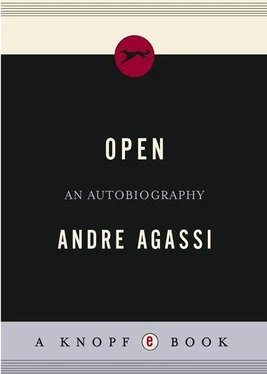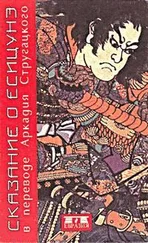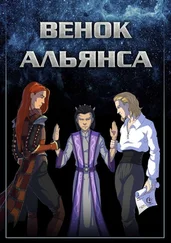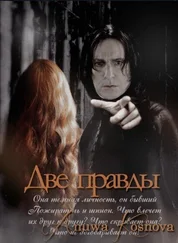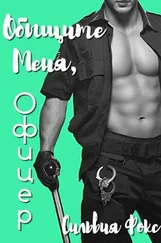Unknown - i a3f9967826fa0ec9
Здесь есть возможность читать онлайн «Unknown - i a3f9967826fa0ec9» весь текст электронной книги совершенно бесплатно (целиком полную версию без сокращений). В некоторых случаях можно слушать аудио, скачать через торрент в формате fb2 и присутствует краткое содержание. Жанр: Старинная литература, на английском языке. Описание произведения, (предисловие) а так же отзывы посетителей доступны на портале библиотеки ЛибКат.
- Название:i a3f9967826fa0ec9
- Автор:
- Жанр:
- Год:неизвестен
- ISBN:нет данных
- Рейтинг книги:5 / 5. Голосов: 1
-
Избранное:Добавить в избранное
- Отзывы:
-
Ваша оценка:
- 100
- 1
- 2
- 3
- 4
- 5
i a3f9967826fa0ec9: краткое содержание, описание и аннотация
Предлагаем к чтению аннотацию, описание, краткое содержание или предисловие (зависит от того, что написал сам автор книги «i a3f9967826fa0ec9»). Если вы не нашли необходимую информацию о книге — напишите в комментариях, мы постараемся отыскать её.
i a3f9967826fa0ec9 — читать онлайн бесплатно полную книгу (весь текст) целиком
Ниже представлен текст книги, разбитый по страницам. Система сохранения места последней прочитанной страницы, позволяет с удобством читать онлайн бесплатно книгу «i a3f9967826fa0ec9», без необходимости каждый раз заново искать на чём Вы остановились. Поставьте закладку, и сможете в любой момент перейти на страницу, на которой закончили чтение.
Интервал:
Закладка:
When I was three he gave me a sawed-off racket and told me to hit whatever I wanted. I spe-cialized in salt shakers. I liked serving them through glass windows. I aced the dog. My father never got mad. He got mad about many things, but never about hitting something hard with a racket.
When I was four he had me hitting with tennis greats who passed through town, beginning with Jimmy Connors. My father told me that Connors was one of the finest to ever play. I was more impressed that Connors had a bowl haircut just like mine. When we finished hitting, Connors told my father that I was sure to become very good.
I already know that, my father said, annoyed. Very good? He’s going to be number one in the world.
He wasn’t seeking Connors’s confirmation. He was seeking someone who could give me a game.
Whenever Connors comes to Vegas, my father strings his rackets. My father is a master stringer. (Who better than my old man to create and maintain tension?) It’s always the same drill. In the morning Connors gives my father a box of rackets, and eight hours later my father and I meet Connors at a restaurant on the Strip. My father sends me in, cradling the restrung rackets. I ask the manager if he can point me to Mr. Connors’s table. The manager sends me to a far corner, where Connors sits with his entourage. Connors is at the center, back to the wall. I hold his rackets toward him, carefully, not saying a word. The conversation at the table comes to a halt, and everyone looks down at me. Connors takes the rackets roughly and sets them on a chair. For a moment I feel important, as though I’ve delivered freshly sharpened swords to one of the Three Musketeers. Then Connors tousles my hair, says something sarcastic about me or my father, and everyone at the table guffaws.
THE BETTER I GET AT TENNIS, the worse I get at school, which pains me. I like books, but feel overmatched by them. I like my teachers, but don’t understand much of what they say. I don’t seem to learn or process facts the way other kids do. I have a steel-trap memory, but trouble concentrating. I need things explained twice, three times. (Maybe that’s why my father yells everything twice?) Also, I know that my father resents every moment I spend in school; it comes at the cost of court time. Disliking school, therefore, doing poorly in school, feels like loyalty to Pops.
Some days, when he’s driving me and my siblings to school, my father will smile and say: I’ll make you guys a deal. Instead of taking you to school, how about I take you to Cambridge Racquet Club? You can hit balls all morning. How does that sound?
We know what he wants us to say. So we say it. Hooray!
Just don’t tell your mother, my father says.
Cambridge Racquet Club is a long, low-roofed dump, just east of the Strip, with ten hard courts and a seedy smell—dust, sweat, liniment, plus something sour, something just past its expiration date, that I can never quite identify. My father treats Cambridge like an addition to our house. He stands with the owner, Mr. Fong, and they watch us closely, making sure we play, that we don’t waste our time talking or laughing. Eventually my father lets out a short whistle, a sound I’d know anywhere. He puts his fingers in his mouth, gives one hard blast, and that means game, set, match, stop hitting and get in the car, now.
My siblings always stop before I do. Rita, the oldest, Philly, my older brother, and Tami—they all play tennis well. We’re like the von Trapps of tennis. But me, the youngest, the baby, I’m the best. My father tells me so, tells my siblings, tells Mr. Fong. Andre is the chosen one. That’s why my father gives me most of his attention. I’m the last best hope of the Agassi clan. Sometimes I like the extra attention from my father, sometimes I’d rather be invisible, because my father can be scary. My father does things.
For instance, he often reaches a thumb and forefinger inside his nostril and, bracing himself for the eye-watering pain, pulls out a thick bouquet of black nose hairs. This is how he grooms himself. In the same spirit, he shaves his face without soap or cream. He simply runs a disposable razor up and down his dry cheeks and jaw, shredding his skin, then letting the blood trickle down his face until it dries.
When stressed, when distracted, my father often stares off into space and mumbles: I love you, Margaret. I ask my mother one day: Who’s Pops talking to? Who’s Margaret?
My mother says that when my father was my age, he was skating on a pond and the ice cracked. He fell through and drowned—stopped breathing for a long time. He was pulled from the water and revived by a woman named Margaret. He’d never seen her before and never saw her again. But every so often he sees her in his mind, and speaks to her, and thanks her in his most tender voice. He says this vision of Margaret comes upon him like a seizure. He has no knowledge while it’s happening, and only a dim memory afterward.
Violent by nature, my father is forever preparing for battle. He shadowboxes constantly.
He keeps an ax handle in his car. He leaves the house with a handful of salt and pepper in each pocket, in case he’s in a street fight and needs to blind someone. Of course some of his most vicious battles are with himself. He has chronic stiffness in his neck, and he’s perpetually loosening the neck bones by angrily twisting and yanking his head. When this doesn’t work he shakes himself like a dog, whipping his head from side to side until the neck makes a sound like popcorn popping. When even this doesn’t work, he resorts to the heavy punching bag that hangs from a harness outside our house. My father stands on a chair, removes the punching bag, and places his neck in the harness. He then kicks away the chair and drops a foot through the air, his momentum abruptly halted by the harness. The first time I saw him do this, I was walking through the rooms of the house. I looked up and there was my father, kicking the chair, hanging by his neck, his shoes three feet off the ground. I had no doubt he’d killed himself. I ran to him, hysterical.
Seeing the stricken look on my face, he barked: What the fuck is the matter with you?
Most of his battles, however, are against others, and they typically begin without warning, at the most unexpected times. In his sleep, for instance. He boxes in his dreams, and frequently hauls off and punches my dozing mother. In the car too. My father enjoys few things more than driving his green diesel Oldsmobile, singing along to his eight-track of Laura Branigan. But if another driver crosses him, if another driver cuts him off or objects to being cut off by my father, everything goes dark.
I’m driving with my father one day, going to Cambridge, and he gets into a shouting match with another driver. My father stops his car, steps out, orders the man out of his. Because my father is wielding his ax handle, the man refuses. My father whips the ax handle into the man’s headlights and taillights, sending sprays of glass everywhere.
Another time my father reaches across me and points his handgun at another driver. He holds the gun level with my nose. I stare straight ahead. I don’t move. I don’t know what the other driver has done wrong, only that it’s the automotive equivalent of hitting into the net. I feel my father’s finger tensing on the trigger. Then I hear the other driver speed away, followed by a sound I rarely hear—my father laughing. He’s busting a gut. I tell myself that I’ll remember this moment—my father laughing, holding a gun under my nose—if I live to be one hundred.
When he puts the gun back into the glove box and throws the car into drive, my father turns to me. Don’t tell your mother, he says.
I can’t imagine why he says this. What would my mother do if we told her? She never raises a word of protest. Does my father think there’s a first time for everything?
Читать дальшеИнтервал:
Закладка:
Похожие книги на «i a3f9967826fa0ec9»
Представляем Вашему вниманию похожие книги на «i a3f9967826fa0ec9» списком для выбора. Мы отобрали схожую по названию и смыслу литературу в надежде предоставить читателям больше вариантов отыскать новые, интересные, ещё непрочитанные произведения.
Обсуждение, отзывы о книге «i a3f9967826fa0ec9» и просто собственные мнения читателей. Оставьте ваши комментарии, напишите, что Вы думаете о произведении, его смысле или главных героях. Укажите что конкретно понравилось, а что нет, и почему Вы так считаете.
